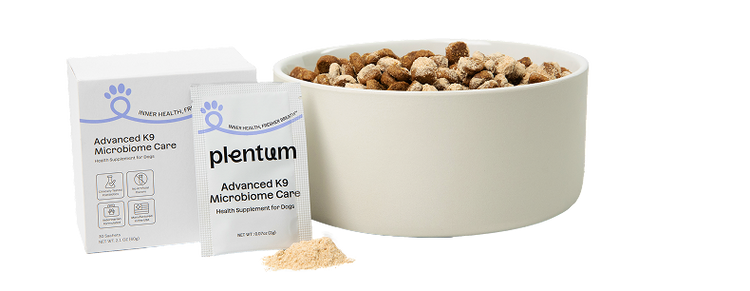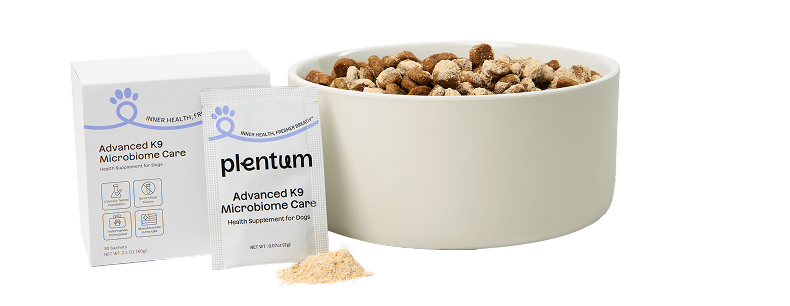
The requirements for dog supplements transform as dogs grow from their puppy stage into their senior years. Dogs need various supplements at different stages of their life cycle in the same way that humans do. The knowledge of these evolving needs enables proper care for your dog throughout their entire life span. The veterinary-backed guide provides evidence-based supplement recommendations for each life stage according to scientific research.

Puppy Stage: Foundation Building (0-12 Months)
Critical Development Needs
The brain development of puppies reaches 80% completion within the first 16 weeks of their life as they experience fast growth. The fast development of infants needs particular dietary needs which differ from those of adult humans.
Essential Supplements:

- DHA-rich omega-3s: Support brain and eye development.
- Probiotics: The introduction of probiotics during weaning establishes a balanced gut microbiome according to research.
- Immune support: Colostrum or natural hyperimmune solutions.
- Balanced Minerals: The proper balance between minerals in the body determines bone development because calcium and phosphorus need to be in the right ratio for proper bone formation.
What to Avoid:
- The use of adult joint supplements including glucosamine and chondroitin is not required for growth development.
- The use of too much calcium through supplements can interfere with bone development.
- The adult doses of vitamins can lead to toxic effects on developing systems.
Adult Stage: Maintenance & Prevention (1-7 Years)
Preventive Health Focus
The nutritional stability of adult dogs becomes achievable at this point because supplements now concentrate on supporting maintenance and disease prevention in early stages. The first stage of life provides the base for achieving successful aging according to the model.
Key Supplement Categories:

- Omega-3 fatty acids: EPA/DHA for joint health and cognitive support.
- Antioxidants: Vitamins C and E provide cellular protection according to research.
- Digestive health: Probiotics to maintain optimal gut microbiome.
The recommended amount of omega-3s for dogs joint prevention should be at low doses instead of therapeutic doses.
Quality Considerations:
Research indicates that numerous commercial pet supplements do not fulfill the requirements set by AAFCO. Select veterinary-formulated products which have undergone third-party testing to ensure both safety and effectiveness.
Senior Stage: Therapeutic Support (7+ Years)
Age-Related Health Management
Senior dogs need specific therapeutic supplements because their bodies undergo major changes during this life stage. The digestive system of healthy aging dogs works properly but they require additional nutritional elements for optimal health.
Cognitive Health Protocol:
- High-dose DHA: Prevents cognitive dysfunction syndrome.
- Antioxidant complexes: Combat brain oxidative stress.
- Medium-chain triglycerides: Provide alternative brain fuel.
Joint & Mobility Support:
- The therapeutic effects of omega-3 doses in clinical studies demonstrate clear pain relief benefits according to research findings.
- The natural anti-inflammatory compounds Turmeric and boswellia compounds exist as part of this list.
- The research shows that glucosamine-chondroitin has no significant impact on pain relief.
Enhanced Immune Support:
- Species-specific probiotics: Counter immunosenescence effects.
- Vitamin D: The human body needs Vitamin D to support bone health and operate its immune system correctly.
- B-complex vitamins: Serve as essential nutrients for the body because they help support both neurological function and energy metabolism.

Safety & Quality Standards
Enhanced Immune Support
Pet supplement regulation remains limited compared to human products. All dogs require veterinary consultation but puppies and senior dogs with health issues need it the most.

Red Flags to Avoid:
- Products without AAFCO compliance
- Supplements lacking third-party testing
- Adult formulations given to puppies
- Unregulated or contaminated products
Implementation Guidelines
Gradual Introduction:
Start new supplements at a low dose to check for side effects while allowing your body to adjust to them.
Regular Monitoring:
Veterinary check-ups on a regular basis allow professionals to evaluate supplement effectiveness while preventing any possible nutrient imbalances.
Life Stage Transitions:
The dog owner should modify the supplement plan according to the dog's life stage changes which occur between 12-18 months (puppy to adult) and 7+ years (adult to senior).
Evidence-Based Takeaways
Research shows that taking proactive supplements at particular life stages leads to better life quality and longer life expectancy. The solution requires identifying particular nutrients which correspond to the needs of different life stages.
- The development of puppies needs DHA and probiotics and proper mineral balance for optimal growth.
- Adults need to take omega-3 fatty acids and antioxidants and digestive health supplements as part of their prevention strategy.
- The program includes specific health benefits for seniors who need assistance with their cognitive function and joint mobility and immune system health.
A professional consultation is necessary because each dog requires individualized care that depends on their breed characteristics and size along with their activity level and current health condition. Work with veterinary professionals to develop personalized supplement strategies that evolve with your dog's changing needs throughout their lifetime.
Your dog will thrive through all life stages when you use quality supplements together with veterinary care.
References:
1. https://journals.lww.com/10.1097/NT.0000000000000399
2. https://pmc.ncbi.nlm.nih.gov/articles/PMC7802882/
3. https://pmc.ncbi.nlm.nih.gov/articles/PMC3738999/
4. https://pmc.ncbi.nlm.nih.gov/articles/PMC7468918/
5. https://pmc.ncbi.nlm.nih.gov/articles/PMC11047554/
6. https://pmc.ncbi.nlm.nih.gov/articles/PMC11173085/
7. https://pmc.ncbi.nlm.nih.gov/articles/PMC7169222/
8. https://pmc.ncbi.nlm.nih.gov/articles/PMC6677383/
9. https://dx.plos.org/10.1371/journal.pone.0220305
10. https://pmc.ncbi.nlm.nih.gov/articles/PMC3513714/





